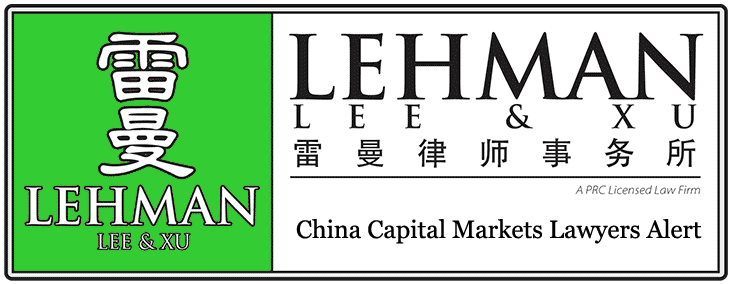
 |
|
LEHMAN, LEE & XU
|
|
China Capital Markets law In The News
|
|
March 2012
|
The China Law News keeps you on top of business, economic and political events in the China. |
|
|
|
In the News |
Should the Pension Fund be Invested in the Capital Market? |
Ahead of this year's two sessions, Zhao Qizheng, spokesman for the annual session of the National Committee of the Chinese People's Political Consultative Conference, or the CPPCC, pointed out that China faces a serious issue of getting old before it gets rich.
|
China capital market reforms |
Chinese premier Wen Jiabao on Monday backed efforts by Guo Shuqing, the recently appointed head of the China Securities Regulatory Commission, to overhaul the nation's financial markets, an important endorsement in a country where the appetite for serious reform has retreated in recent years. Speaking before the National People's Congress, China's lawmaking body, in Beijing, Wen promised to “improve both initial public offering and delistings, and ensure better protection of returns on investors' money and their rights and interests". Guo, a former chairman of China Construction Bank who took over as head of China’s securities regulator last October, has started laying out a blueprint for changes aimed at cutting red tape and allowing China's bond and equity markets to work more efficiently and help provide capital for small, entrepreneurial firms that have long struggled to raise loans from banks. He has floated some ideas, including reducing the CSRC’s role in approving IPOs, letting China's local pensions funds invest in stocks, and calling for research into allowing small private companies to issue high-yield bonds. On Monday, Guo told reporters that China will "quickly" launch a high-yield bond market. |
|
|
|
|